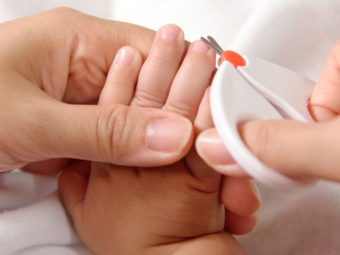
Image: Shutterstock
An expectant mother’s body goes through a lot of changes during pregnancy. There is a complete emotional, physical, and hormonal overhaul that occurs during this time. All this is to accommodate the presence of a new being nurturing in her body. It has been a widely accepted fact that a healthy pregnancy usually thrives when there is a finely-tuned interaction between maternal and fetal cells. But then, most scientific researches in this regard were done on mice, which probably did not give the real picture. However, recent researches now prove that a pregnant woman’s immune system plays a very important role in ensuring a successful pregnancy.
The Antibody-Antigen Misconception
We all know how immunity works. It releases antibodies that attack foreign cells/intruders that might harm our body (1). This action of the human immune system against antigens/foreign bodies at times backfires when organ implantation is done. In such cases, a person’s body which is in need of an organ transplant might reject a donor organ assuming it to be a foreign body (2). For long, researchers were under the misconception that a pregnant woman’s immunity reacts the same way toward fetal cells.
In a recent article published in a leading scientific journal, Dr. Gil Mor – professor of reproductive sciences, gynecology, and obstetrics at the Yale University of Medicine, New Haven, CT- and his colleagues have explained how scientists have for many years misconstrued the presence of a number of immune cells at the implantation site of the embryo. It was assumed that the immune cells were fighting to stop the foreign embryonic cells, which, in turn, were trying to defend themselves by suppressing this response of the immune cells. If the embryonic cells were successful in suppressing the immune cells, the implantation turned out to be successful. And this struggle was assumed to continue throughout the pregnancy. Therefore, scientists mostly believed that repressing the maternal immune system would avert rejection of the fetus, thereby reducing the chances of a miscarriage or pre-term birth (3).
How The Immune System Works During Pregnancy
Another important study conducted by researchers at the March of Dimes Prematurity Research Center, Stanford University, California, seems to have busted this myth. In this study, Dr. Brice Gaudilliere- asst professor of pain medicine, anesthesiology, and perioperative- and his colleagues together built a comprehensive model of the behavior of the human immune cells during a normal pregnancy. For the study, 21 pregnant women who were receiving regular antepartum care at Lucile Packard Children’s Hospital were enrolled. Since 3 of the women delivered prematurely, they were excluded from the study. The rest were studied for a deep, single-cell profile of the systemic immune response to pregnancy. Their blood samples were analyzed at regular intervals throughout the pregnancy. The researchers set up an immunology clock of pregnancy to examine the exact timing of the pregnancy-induced changes in immune regulation and function.
The researchers developed an algorithm that measured the immunological timeline throughout the pregnancy. They found that during pregnancy, the immune system altered its function to protect the fetus from the immunological attack of the maternal cells. The maternal immune system underwent this alteration without compromising on its ability to protect the mother against infections. The amazing findings of this study bring a new perspective to the way scientists have been viewing the immune cell interaction during pregnancy. The results of this study have been published in a leading scientific journal (4).
By developing the immunology clock to track the chronological changes of the immune system during a normal pregnancy, the researchers of this study have made a major breakthrough in this regard. Yet, having achieved this, they don’t wish to rest on these findings. In fact, their long-term plan is to explore the results of their study even further. Such an endeavor, if pursued, will surely give more insight to an expectant mother and encourage her to improve her immunity before conceiving. This will also help break new grounds in the field of medical care during pregnancy and childbirth.
We wish them all the luck in their noble endeavor!
















